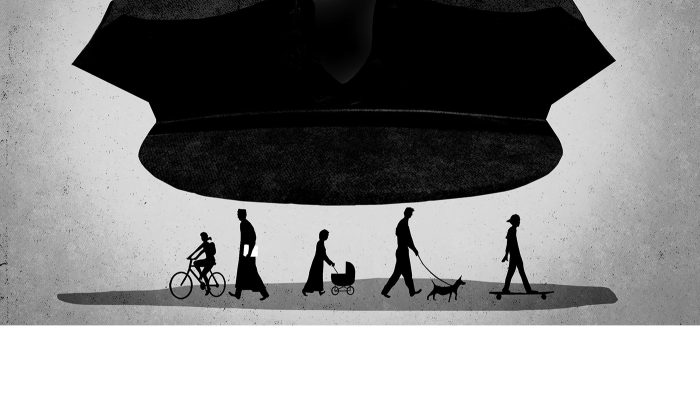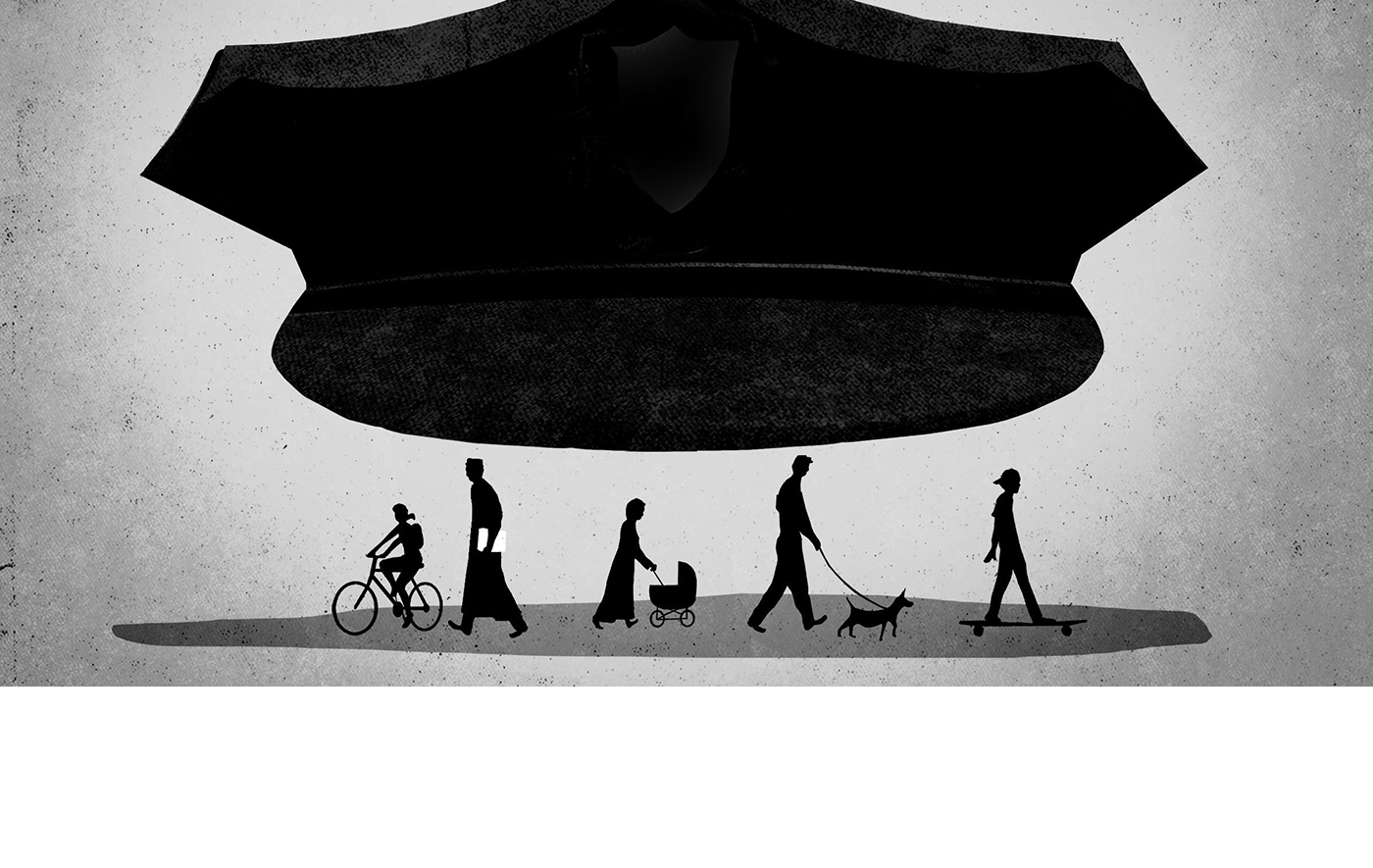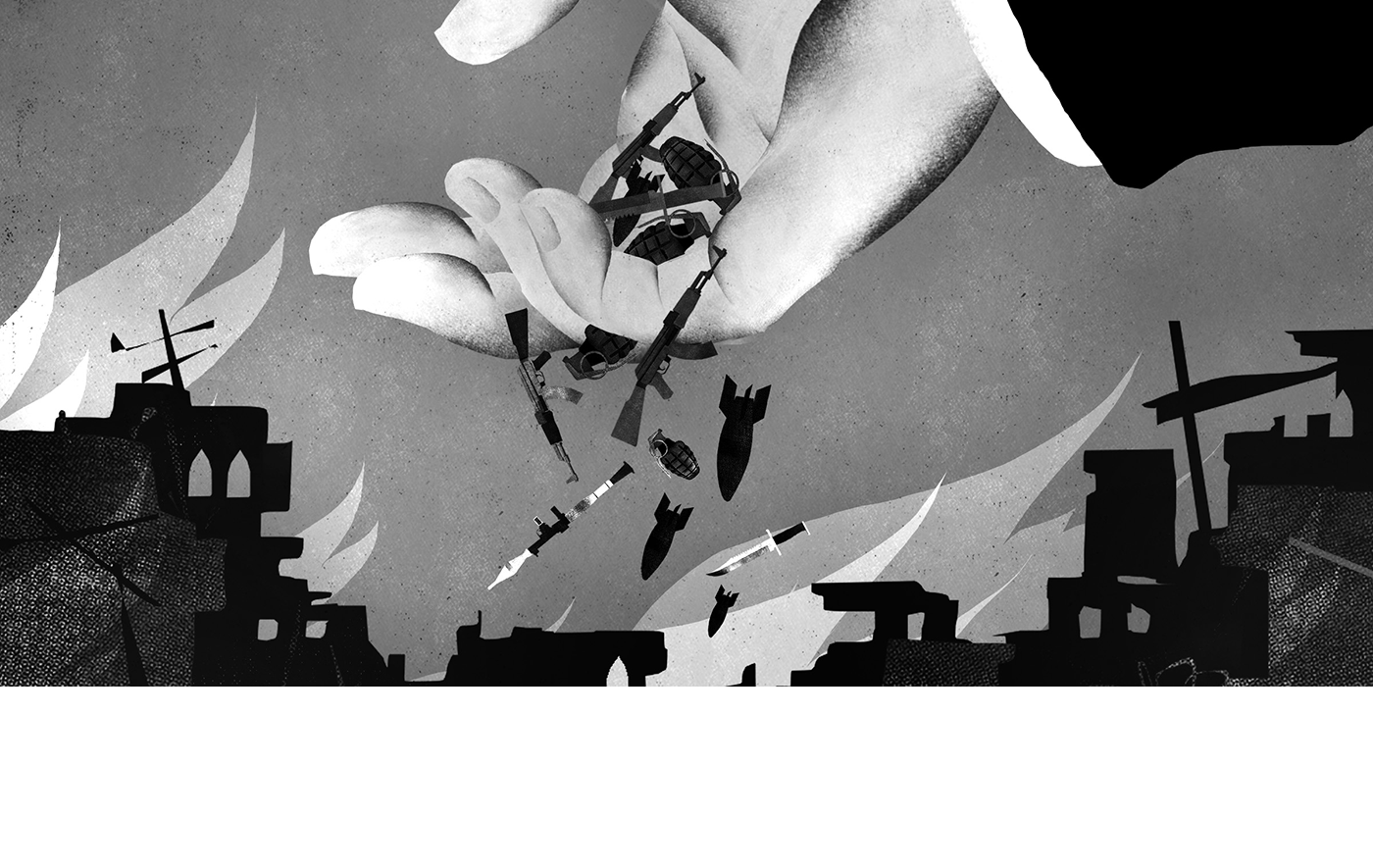News from the terrorism and counterterrorism fronts has been grim of late. Extremists—with or without the support of armed groups—have staged a horrific run of attacks on the general population. From a stadium in Paris to a café in Dhaka, from a hotel in Bamako to a beach in Côte d’Ivoire, from a government office party in California to a gay nightclub in Florida, and from airports in Brussels and Istanbul to a park in Lahore, suicide bombers and gunmen have killed hundreds of people and injured thousands more since late 2015. On the beachfront in Nice, one man ran down 85 Bastille Day celebrants with a cargo truck.
While the group Islamic State (also known as ISIS) was seemingly in retreat from Middle Eastern battlefields at time of writing, thousands of its foreign members have begun returning to their homes around the world, including both the disillusioned and those perhaps intent on carrying out attacks on their native soil. Additional ISIS members may have never left home to begin with. Other armed groups continue deadly strikes on civilians, including Al-Shabab in Somalia, and Al-Qaeda offshoots such as Al-Qaeda in the Islamic Maghreb. So-called lone wolves, sympathizers who do not have the direct backing of extremist armed groups, remain a potent threat.
In response to these immense challenges, dozens of governments are adopting an array of counterterrorism laws and measures that are separate from any planned or potential military operations. States have a responsibility to protect their populations from harm, but many of these recent national laws and measures are dangerously overbroad, vague, or intrusive. Rather than providing greater security, they risk violating basic rights, incarcerating the wrong people, and alienating minority populations that could play a positive role in helping to curtail terrorist attacks.
Two major developments are especially pertinent today: the proliferation of counterterrorism laws, many aimed at so-called Foreign Terrorist Fighters (“FTFs”); and declarations of states of emergency to combat a terrorist threat.
In many cases, governments have rushed through such measures in the immediate aftermath of tragic attacks with scant debate, which past experience has shown creates a serious risk that exceptional measures will become norms without sufficient public scrutiny or consideration of their long-term impact.
Those who could or do bear the brunt of overly broad or vague counterterrorism measures include not only terrorism suspects but also peaceful protesters, journalists, political opponents, human rights defenders, and members of ethnic or religious groups. In operations against Islamist armed groups, many of those who risk being wrongfully targeted or stigmatized are Muslims.
A rise in xenophobia and Islamophobia in Western countries, stoked in part by political figures capitalizing on both Islamist extremist attacks and a global refugee crisis that has displaced millions—particularly from predominantly Muslim countries such as Syria, Afghanistan, and Somalia—risks further conflating Muslims with armed extremists. Yet many victims of Islamist armed attacks are themselves Muslim and many refugees are fleeing the atrocities of extremist armed groups like ISIS. And as the United Nations special rapporteur on counterterrorism and human rights has noted, there is little if any evidence to suggest that refugees or asylum seekers pose a greater security threat than other groups.
Properly conceived and implemented, many of the recent counterterrorism measures could advance both security and fundamental values. Yet too often they are framed or implemented in ways that could erode the rule of law and human rights, including in democratic governments that should be at the vanguard of protecting them.
New “Foreign Terrorist Fighter” Measures
Counterterrorism laws and regulations in a growing number of countries include one or more “FTF” provisions. Human Rights Watch research shows that at least 47 countries have passed “FTF” laws since 2013—the largest wave of counterterrorism measures since the immediate aftermath of the attacks of September 11, 2001.
While many earlier counterterrorism laws contained similar and equally problematic provisions, such as expansions of police and intelligence powers without adequate legal safeguards, this second wave exacerbates the potential for abuse.
Countries that have enacted new counterterrorism laws or toughened pre-existing ones include Algeria, Austria, Australia, Bahrain, Belgium, Bosnia and Herzegovina, Brazil, Bulgaria, Cameroon, Canada, Chad, China, Denmark, Egypt, France, Germany, Indonesia, Ireland, Israel, Italy, Jordan, Kazakhstan, Kenya, Kosovo, Libya, Macedonia, Malaysia, Morocco, the Netherlands, New Zealand, Norway, Pakistan, Poland, Portugal, Russia, Saudi Arabia, Serbia, Spain, Sweden, Switzerland, Tajikistan, Tunisia, Uganda, the United Arab Emirates, the United Kingdom, the United States, and Uzbekistan.
Many countries are enacting these measures to comply with UN Security Council Resolution 2178 of 2014, which aims to stem the “acute and growing threat” posed by “FTFs” at home and abroad. Drafted primarily by the US, Resolution 2178 requires all UN member countries to prosecute as “serious criminal offenses” an array of acts, such as training or fighting with foreign terrorist groups, recruiting for these groups, or financing their operations.
The US estimated in October 2016 that 40,000 foreign fighters from over 120 countries had gone to Syria over the preceding five years, although the flow appears to have ebbed.
In a grave omission, Resolution 2178 does not limit the actions that governments may designate as “terrorism” or “terrorist”—terms for which no universal legal definition exists. This has left governments to craft dangerously open-ended laws and regulations that could be used to criminalize internationally recognized activities including peaceful protests, critical speech, and freedom of movement and religion. They also risk infringing on due process guarantees, the right to privacy, and even the right to life.
“FTF” measures can also put humanitarian assistance at risk by criminalizing impartial aid deliveries and life-saving medical treatment by foreign volunteers and nongovernmental organizations.
Overbroad and vague laws run counter to the basic principle in international human rights law that laws should be precisely drafted and understandable, both as a safeguard against their arbitrary use and so that people know what actions would constitute a crime.
A large number of foreigners joining groups such as ISIS are teenage children, including some who were forcibly recruited. How countries apply “FTF” laws in such cases is of particular concern. Recruitment of children under the age of 15 is a war crime. Governments should generally treat child soldiers foremost as victims who need rehabilitation and social reintegration, not detention or prosecution.
Adults whose actions abroad did not include direct involvement in armed violence also should be considered for reintegration services in lieu of criminal incarceration. Such programs can involve monitoring suspects, provided the measures are not overly invasive and are subject to effective review.
Overbroad or Vague Definitions of “Terrorism”
Countries including Australia, Brazil, Canada, China, Egypt, Israel, Saudi Arabia, and Tunisia have enacted counterterrorism laws criminalizing non-violent activities that fall far short of material support or participation, such as singing a banned group’s anthem or participating in anti-government protests.
China’s definition of “terrorism” as of January 2016 includes a term that can mean to “propagate” but also to “advocate,” potentially creating a new tool to outlaw thought or speech.
Canada’s counterterrorism law of 2015 creates a criminal offense of knowingly “advocating or promoting the commission of terrorism offences in general,” without defining the term “terrorism offences in general.”
The list of offenses in Israel’s counterterrorism law of 2016 includes expressing support for a listed terrorist group: acts such as waving the group’s flag, or singing its anthem are punishable by up to three years in prison.
Countries are also creating or stepping up use of pre-existing “glorification” of terrorism offenses regardless of whether such praise amounts to incitement. In February 2016, a Spanish court charged two puppeteers with “glorifying terrorism” for staging a carnival show that included violent scenes and a puppet holding a sign that referenced Al-Qaeda and the Basque armed group ETA. A judge dismissed the charges four months later, but the puppeteers were jailed for four days in the interim and barred from leaving the country.
In the wake of the Charlie Hebdo attacks, France has applied its “glorification” of terrorism penal code provision broadly, convicting 385 people in 2015. In at least four of the cases, prosecutors interrogated children, some as young 13, for referencing ISIS in social media or during altercations with police.
Travel Bans
Many “FTF” measures include imposing travel bans—often implemented through suspending passports and national identity cards—on people suspected of intending to travel abroad to join or train with groups the government considers to be foreign terrorist organizations. Suspensions generally range from six months to two years.
The United Kingdom restricts not only departures but also returns of citizens and residents suspected of terrorism-related travel if they refuse to participate in a deradicalization program. Tunisia and Egypt have enacted sweeping foreign travel bans on males under ages 35 and 40, respectively. Countries including Egypt and Kenya have used such travel bans to bar travel of opposition figures and academics, as well as civil society members invited to training workshops.
While travel bans may be warranted in certain cases, blanket bans risk violating the international right to leave or return to one’s country and could harm the suspect’s family members. Of particular concern is the fact that many countries do not require prior judicial approval to ban travel or suspend passports and identity cards.
Citizenship Revocation
Countries also are passing laws that can revoke citizenship of dual nationals convicted of terrorism-related offenses.
Australia’s Allegiance Act of December 2015 allows immigration authorities to strip Australian citizenship from dual nationals as young as 14, without requiring a criminal conviction, if they believe the individual engaged in serious terrorism offenses abroad. Other countries that have passed citizen-stripping laws include Austria, Australia, Bahrain, Belgium, Canada, the Netherlands, and the UK.
International law affirms that everyone has a right to a nationality. While most countries only allow for revocation of citizenship where the individual in question has a second nationality, the UK allows for revocation of citizenship from naturalized British citizens who do not hold another nationality, creating a risk of statelessness. Bahrain has reportedly revoked the citizenship of more than 300 people since 2012, including civil society activists, journalists, and religious figures—many via a 2014 counterterrorism amendment that allows authorities to strip citizenship from Bahrainis who “cause harm to the state” or fail in their “duty of loyalty.” This reportedly has rendered several of them stateless.
Expanded Police and Intelligence Powers
Belgium, Canada, China, France, Israel, Pakistan, Poland, Russia, and Tunisia are among countries that have expanded police or intelligence powers in terrorism-related cases, in many instances with insufficient oversight.
Canada’s counterterrorism law of 2015 allows the Canadian Security Intelligence Service (CSIS) to disrupt activities if it deems them unlawful, and even to violate the country’s Charter of Rights and Freedoms so long as it obtains a warrant in a secret hearing.
Poland’s counterterrorism law of 2016 allows surveillance of foreigners for up to three months without a court order. It also empowers a local security force commander to order snipers to shoot to kill to prevent a rapid attack on human life or health or when rescuing a hostage when the country is at its highest threat level. While UN principles allow police to use lethal force as a last resort to save the lives of others, Poland’s measure raises the concern that a commander may issue a kill order without having determined that there is an imminent threat to human life.
Since 2013, France has passed several laws that codify sweeping authority for digital surveillance on both a targeted and mass basis. Internet service providers may be forced to install “black boxes” on their networks to search all traffic for unspecified “suspicious” patterns. These laws do not impose adequate safeguards against abuse and often do not require prior judicial approval. Russia and China also have enacted sweeping surveillance laws.
The United States and United Kingdom continue to collect data on hundreds of millions of internet users worldwide every day, three years after US whistleblower Edward Snowden first revealed these mass violations of privacy. Reforms in the US in 2015 were insufficient, as were the reforms of intelligence powers proposed in the UK at time of writing.
Preventive Detention and Control Orders
In tandem with measures banning suspected “FTFs” from travel abroad, countries including Australia, Canada, France, Libya, and the UK have enacted or continued to use preventive detention or “control” measures for terrorism suspects that severely restrict their movements at home.
Despite US President Barack Obama’s pledge upon taking office in 2009 to close the US military prison at Guantanamo Bay, the United States at time of writing continued to indefinitely detain dozens of individuals there without charge.
Preventive detention and control measures limit people’s liberty on the suspicion that they may intend to commit a criminal act in the future, rather than because they are suspected or found guilty of committing a crime in the past. These measures are imposed based on a lower threshold of evidence than would be required for a criminal conviction, and in some cases on intelligence material that may be difficult for the accused to challenge. While control orders may be permissible in exceptional, narrowly defined circumstances, such as clear evidence of a potential threat, their routine use violates international human rights law.
Control orders typically include curfews, extensive home confinement, forced domestic relocation, and restrictions on where targeted people can pray, whom they can visit, what websites they can access, and even what over-the-counter substances they can consume.
Lengthy Pre-Charge and Pretrial Detention
Terrorism suspects are increasingly subjected to pre-charge or pretrial detention periods that exceed international guidelines. In some cases, the detainee is initially held incommunicado. International standards require “prompt” judicial review of detention—generally within 48 hours—as longer periods increase the risk of torture and other ill-treatment.
Chad, Egypt, France, Malaysia, Poland, Saudi Arabia, Spain, and Tunisia are among countries with excessive pre-charge or pretrial detention periods. Chad allows pre-charge detention for 30 days, renewable twice. Malaysia’s 2015 Prevention of Terrorism Act allows pretrial detention of up to two years, with indefinitely renewable two-year extensions.
Special Courts and Death Penalties
Another growing trend is the use of special courts or proceedings for terrorism suspects that flout international due process standards by holding closed sessions with little or no justification, and restricting suspects’ rights to consult a lawyer, examine evidence against them, and question those who testify against them.
Egypt’s courts have tried hundreds of suspected Islamists in mass trials in which lawyers said they were denied the right to make their case or question witnesses.
Chad, Egypt, Pakistan, Saudi Arabia, the United Arab Emirates, and the US combine proceedings for terrorism offenses with the death penalty. Pakistan and Saudi Arabia since late 2015 have each executed dozens of people on terrorism convictions, including after trials that fell far short of international due process standards. Chad in 2015 executed 10 men in one day after convicting them in secret proceedings. The United States continues to try detainees at Guantanamo in military commissions that do not meet international fair trial standards. Six of seven men currently charged face the death penalty.
“Countering Violent Extremism”
UN Security Council Resolution 2178 also requires that states “enhance efforts” aimed at “countering violent extremism” (“CVE”)—sometimes referred to as “Preventing Violent Extremism (“PVE”)—through educational, social, and other activities.
Implemented with sensitivity and respect for human rights, efforts to dissuade individuals from joining or supporting terrorist groups could be a welcome addition to counterterrorism efforts. However, Resolution 2178 lists “preventing radicalization” as an “essential element” of “CVE” without any requirement that the “radical” behavior involve violence or intended violence. This raises the specter of clampdowns on peaceful expression and association, including academic freedom and religious devotion.
In France following the Bastille Day attack in Nice, mayors along the Riviera used “CVE” as a justification to ban the “burkini”—burqa-inspired swimwear—arguing that it signified potential “affiliation with religious fundamentalism.” A court overturned the ban, rejecting any link between the garment and national security threats, but the debate still rages.
The UK’s long-standing “CVE” program, Prevent, has been criticized for its overbroad approach, which has included police surveillance of a predominantly Muslim neighborhood in a British city. In 2015, the UK imposed a duty on primary schools, universities, and healthcare providers to “prevent” violent extremism. Reports have emerged that schools and universities are casting suspicion on lawful activities, creating the risk of a chilling effect on academic freedom.
In the United States some “CVE” programs instruct social workers, teachers, mental health professionals, religious figures, and others to report on young people they believe are heading towards radicalization based on criteria such as “perceived sense of being treated unjustly,” “expressions of hopelessness, futility,” and “connection to group identity (race, nationality, religion, ethnicity).”
States of Emergency
Since late 2015, Egypt, Ethiopia, France, Mali, Tunisia, and Turkey have cited terrorism as a reason to enact or extend states of emergency. Some of these emergency measures vastly increase government powers to search, detain, and monitor individuals, to shut establishments such as meeting houses and places of worship, and to ban public gatherings or free speech.
International law allows restrictions on fundamental rights and freedoms during severe crises such as those that threaten the life of a nation. However, the restrictions must be temporary, non-discriminatory, and strictly limited in scope. Certain rights are non-derogable, including the rights to life; freedom from torture, inhuman, or degrading treatment; legality and equality before the law; and freedom of thought, conscience, and religion. Many measures under such states of emergency have violated these principles.
Ethiopia in October 2016 declared a sweeping, six-month state of emergency following government crackdowns in the restive Oromia region that killed at least 500 people in largely non-violent protests during the past year. The government called the protesters “terrorists” or said they were working with “terrorist groups abroad.” At time of writing the government said 1,600 people had been arrested during the state of emergency—in addition to tens of thousands of others detained in regions where residents have protested government policies in the past year. Human Rights Watch received unconfirmed reports of unlawful killings, mass arrests, and looting of houses and businesses by security forces.
Mobile phone access to the internet was blocked and Addis Standard, one of Ethiopia’s few remaining independent publications, stopped publishing its print edition due to state of emergency restrictions. Ethiopia also continued to detain scores of opposition leaders, journalists, and dissenters under its overbroad counterterrorism law of 2009.
In response to a coup attempt in July 2016, Turkish President Recep Tayyip Erdogan at time of writing had imposed a state of emergency until January 2017 to quash what he described as the “Fethullahist Terrorist Organization (FETO),” in reference to supporters of the US-based cleric Fethullah Gulen, whom he has accused of masterminding the failed putsch. Erdogan has used his emergency powers to detain more than 40,000 people, including soldiers, policemen, judges, prosecutors, journalists, and teachers, on suspicion of involvement in the coup or membership in FETO. Erdogan’s government also has used the emergency powers to crack down on Kurdish activists, opposition elected officials, and media outlets under the guise of countering terrorism.
The emergency powers also extend pre-charge police detention for terrorism suspects from 4 to 30 days and deny detainees access to counsel for 5 days, removing crucial safeguards against torture. Not surprisingly, allegations of torture and other ill-treatment of detainees surfaced following declaration of the emergency.
France’s emergency law, activated after the Paris attacks in November 2015, was renewed for the fifth time on December 15 until July 2017. The law empowers police to raid homes and other premises, search luggage and vehicles, and seize data from computers and mobile phones, without prior approval from a judge. It allows the interior minister to place people under house arrest on vague accusations, such as being a “radical,” also without prior judicial approval. Human Rights Watch has documented abusive or discriminatory searches and house arrests of Muslims under the state of emergency.
Tunisia has used its state of emergency, enacted in 2015 after a series of armed extremist attacks, to disperse apparently peaceful protests against a proposed law to grant impunity to former government officials for corruption. It also has confined at least 139 people to their homes, indefinitely and without charge, since November 2015, a Human Rights Watch investigation found. Police deliver the arrest orders orally rather than in writing, making it harder for the affected person to mount a court challenge.
Egypt has cited terrorism as reason to maintain a state of emergency in North Sinai that since 2014 has made it easier for the military and police to carry out arbitrary detentions, and thousands of mass evictions and home demolitions that violate international human rights law.
***
Targeted laws and prevention programs can be important tools to address the pressing and often transnational challenges that extremist armed groups pose. But the recent spate of sweeping counterterrorism measures worldwide suggests many governments have learned little from the corrosive “Global War on Terror” that the US launched after the September 11, 2001 attacks. While many countries now reference human rights in their counterterrorism initiatives, their laws and policies continue to invite overreach, and too many dispense with judicial review and other critical checks against abuse.
A key step toward reversing that trend is for UN member states to press the Security Council to limit what acts can be considered “terrorism” in mandates such as Resolution 2178, to ensure they are fully consistent with international human rights law, refugee law, and international humanitarian law (the laws of war). These definitions should, for example, exclude acts that lack the elements of criminal intent to cause death, serious bodily injury, or the taking of hostages in order to create a state of panic and provoke a government or third-party response. Regional bodies such as the European Union and the African Union should follow suit.
Governments, for their part, should promptly repeal or revise overly broad or vague “FTF” and CVE measures, and, when facing extraordinary threats that warrant declaration of an emergency, should limit the scope and duration of emergency powers to what is truly necessary to address the crisis. They should publicly call on other countries to do the same.
Governments need effective responses to attacks, but effective responses should not and do not have to come at the expense of basic human rights. Abusive responses are not only unlawful; they also backfire by alienating local populations at a time when governments should seek to unite societies against extremist armed threats.






